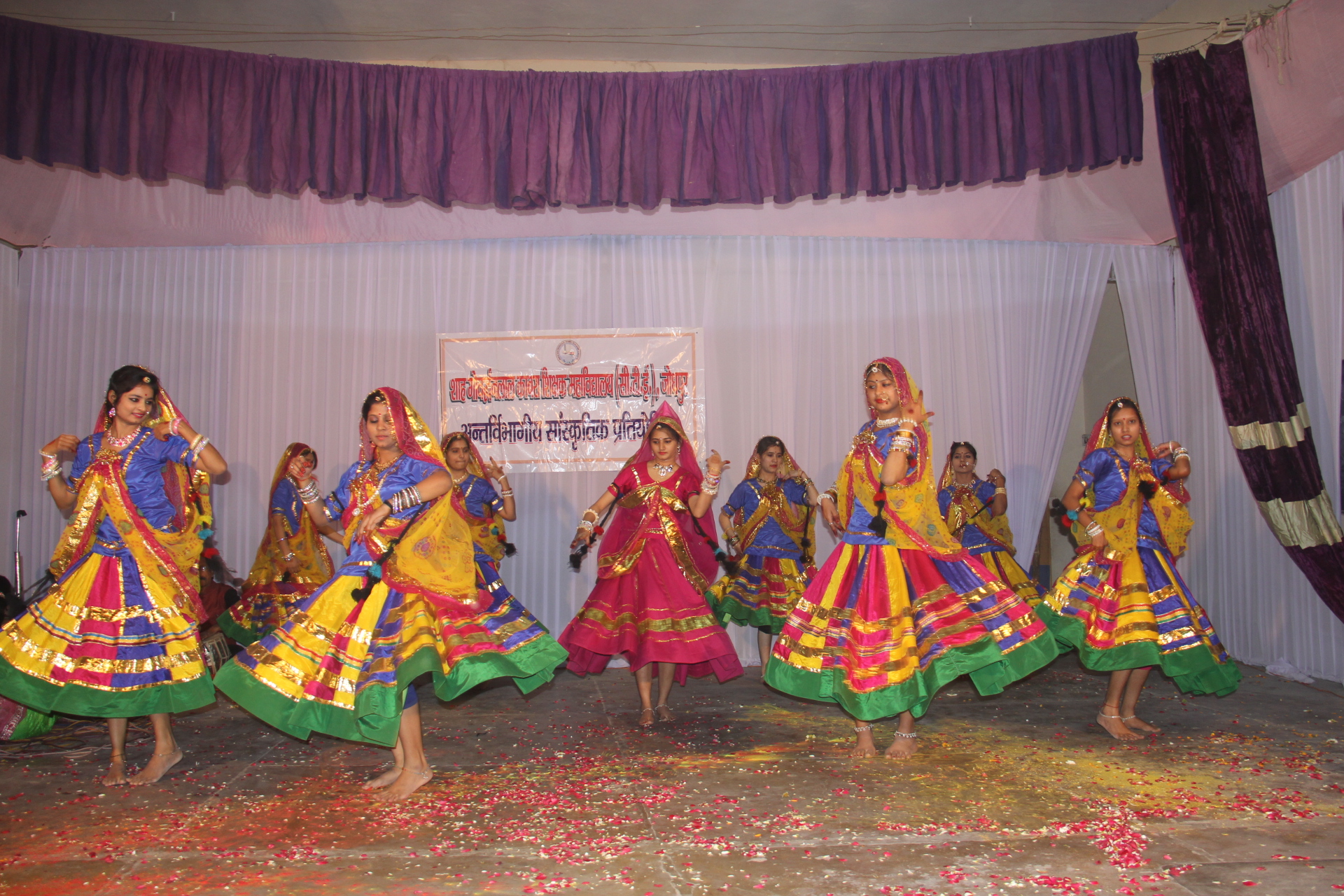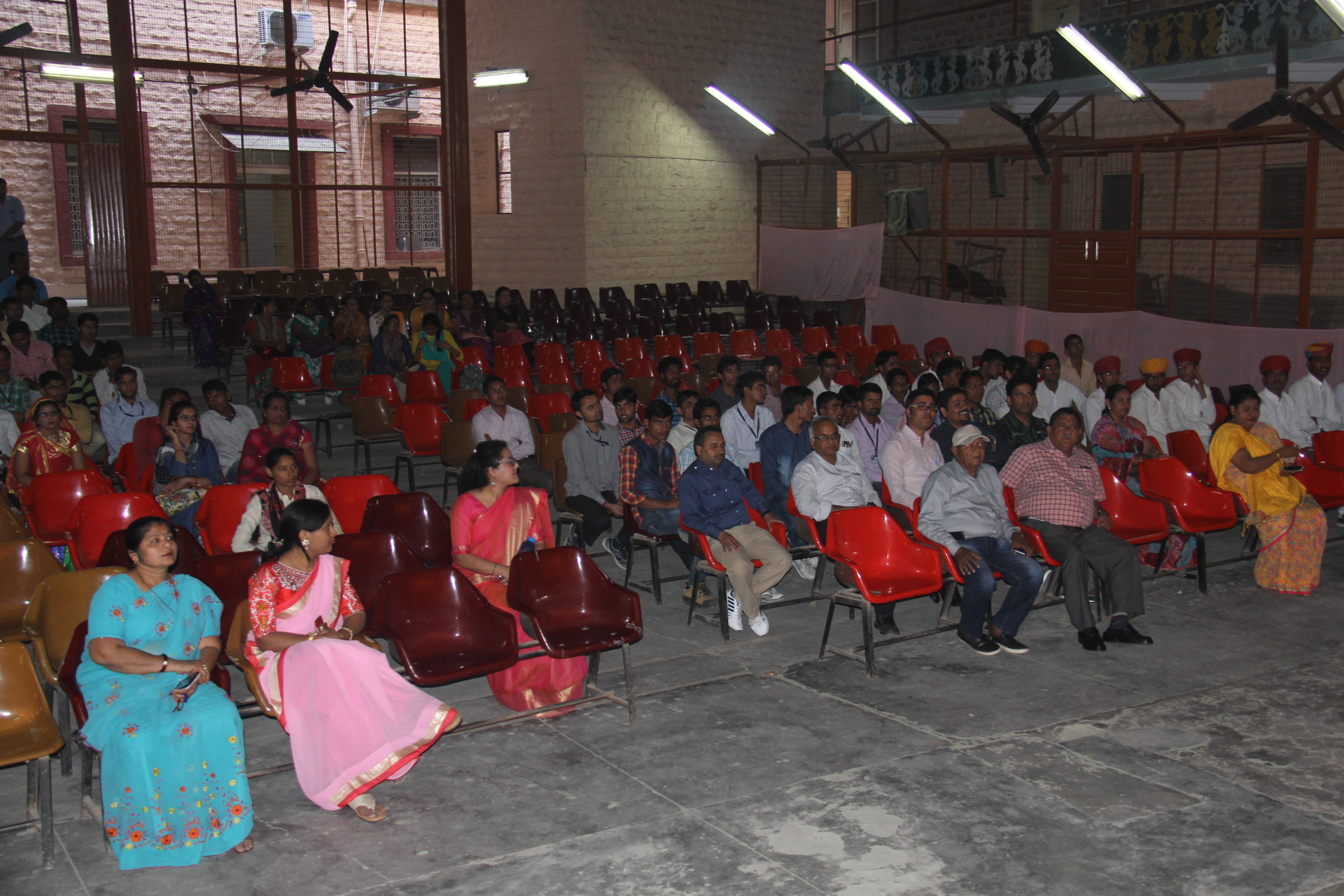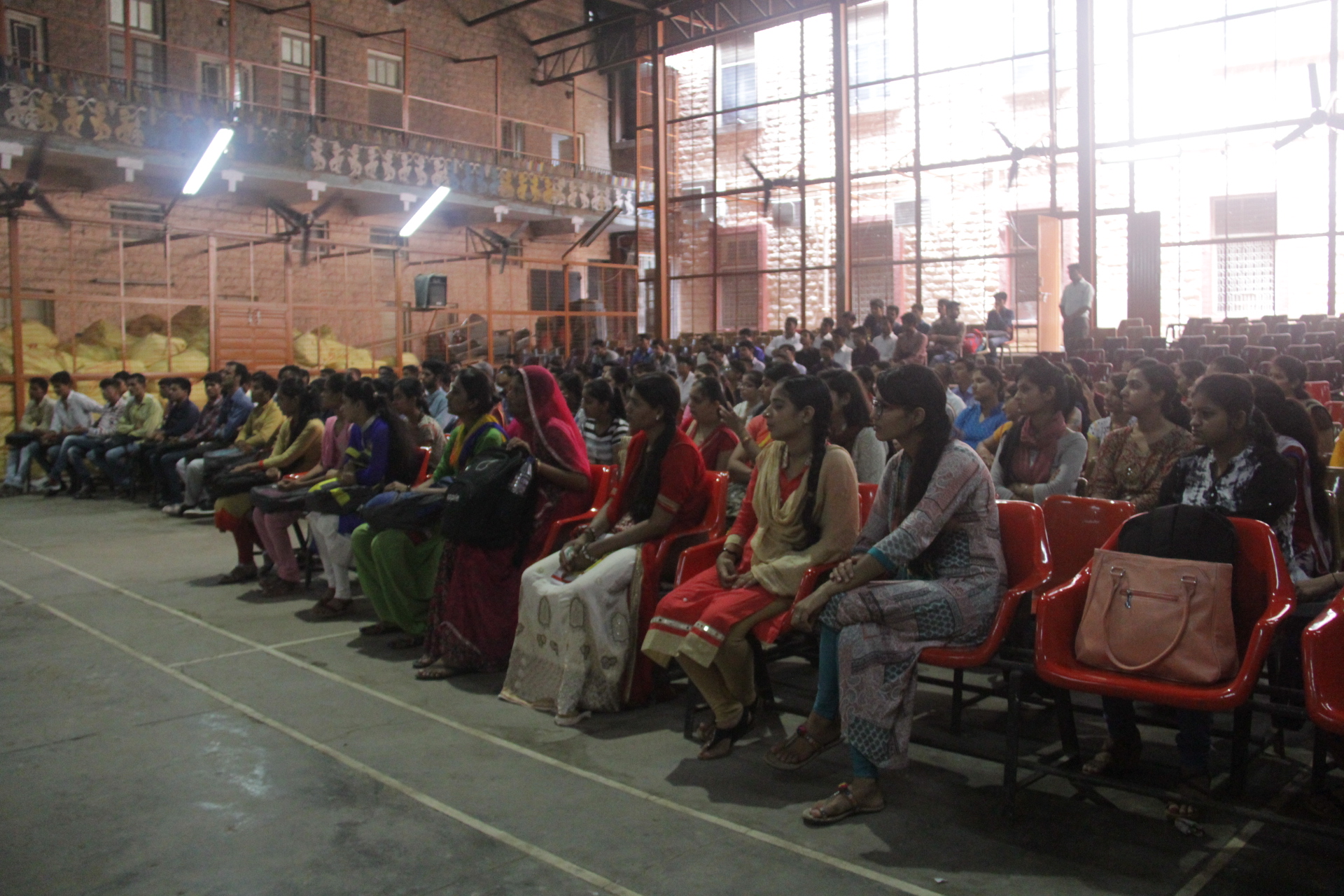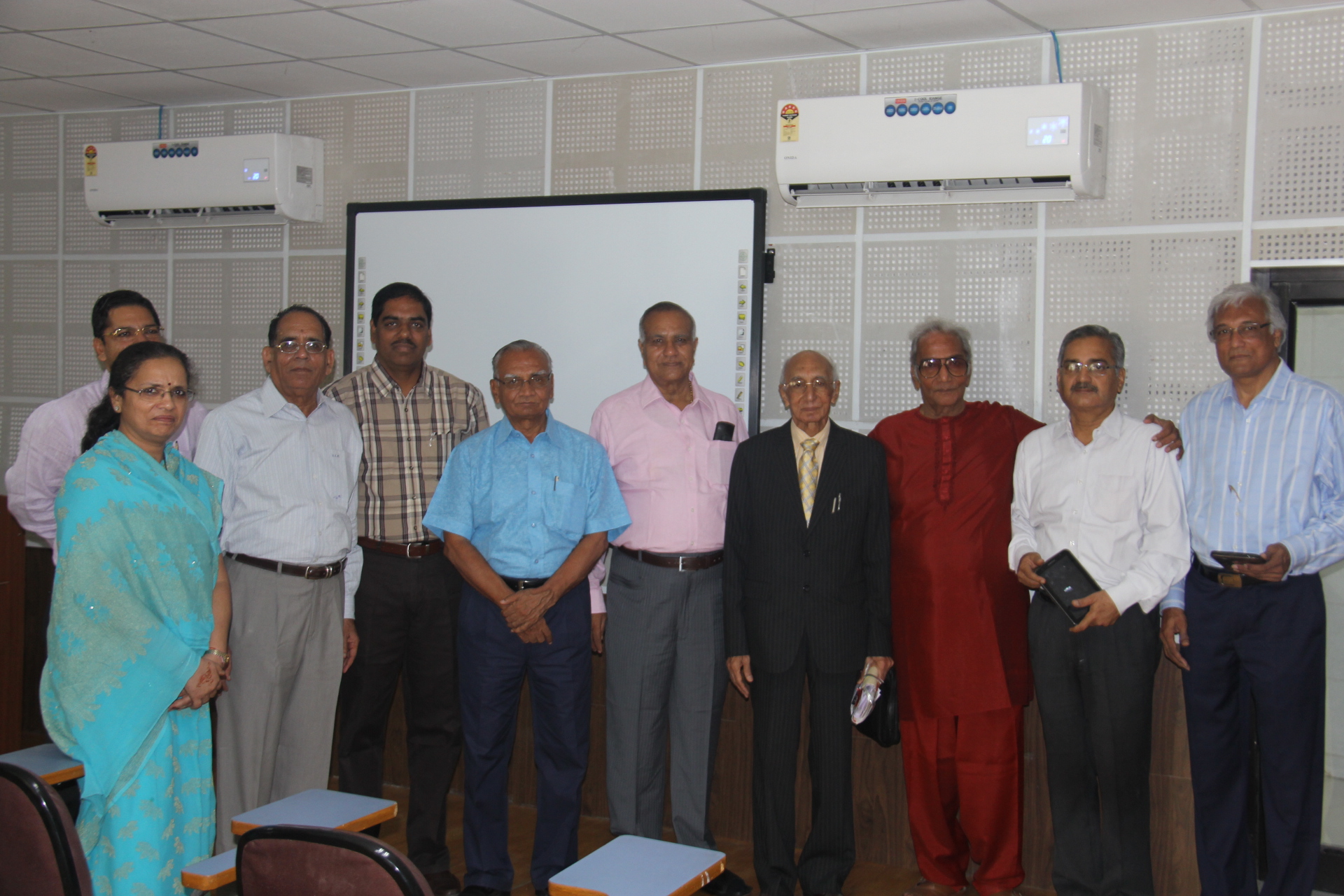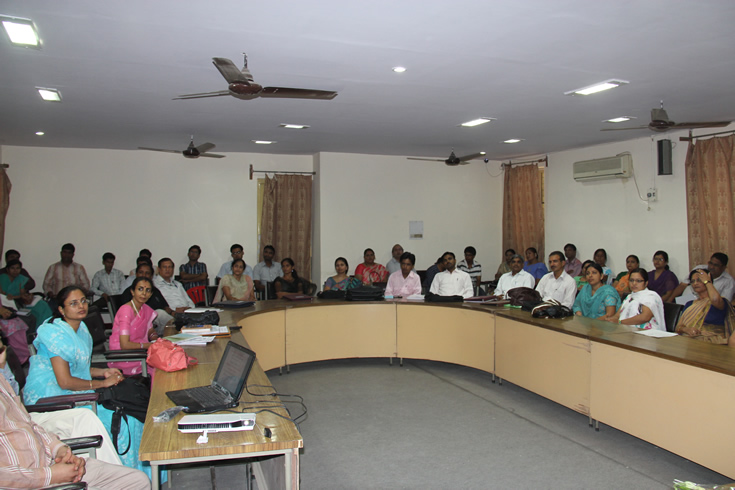| 1 |
Core Course-1 Psychology of learning and development |
|
Core Course -I Psychology Of Learning And Development
Learning Objectives & Outcomes:
After completion of the course, student-teachers will be able:-
To understand schools of Psychology.
To understand the learning theories and its implications for teaching- learning.
To understand concepts and principles of Educational Psychology as an applied science.
To understand implications of psychological theories for education.
To assess personalities and modified their teaching strategy according to needs of students.
To understand Creativity and means to develop it among students.
To understand mental hygiene & its Implications for education
To use adjustment strategies in their day to day life.
COURSE CONTENT
UNIT – I SCHOOL OF PSYCHOLOGY AND LEARNING THEORIES
(A) School of Psychology An Introduction to – Behaviourism, Purposivism, Gestalt, Psycho-analysis.
(B)Learning Theories with Class-room implications: Skinner’s Operant Conditioning, Lewin’s Cognitive field Theory, Cognitive and Contextual Theories: Learning by Insight by Kohler, Bandura, Vygotsky; Contribution of Piaget, Bruner and Ausuble to learning.
UNIT-II PSYCHOLOGICAL FACTORS AFFECTING LEARNING
(A)Individual Differences- Concept, kinds & causes of individual difference.
(B)Intelligence, Emotional Intelligence and cognitive abilities-Meaning, Concept, identification & fostering.
(C)Interests, attitude and Aptitude.
UNIT- III Creativity & Personality:
(A)Personality: Concept, development, structure and dynamics of personality
(B)Theories of Personality – Allport, Eysenck; Psychoanalytic approach of Freud, Murray’s need theory; Humanistic approach – Karls’s Roger, Maslow & Sri Aurobindo.
(C)Techniques of Assessment of Personality –
a. Projective
b. Non-Projective
(D)Creativity – Nature, Process, Identification, fostering and guiding creative children.
UNIT- IV Adjustment and Mental Health:
(A)Adjustment – Psychology of Adjustment, Adjustment processes and Different Adjustment mechanism.
(B) Mental Health –
(a) Concept of mental health.
(b) Identification of Mental Health.
(c) Theoretical Basis of Mental Health.
(d) Factors influencing (Parents and family life, community and school practices)
(e) Mental Health & Teacher.
(f) Principles of mental hygiene – preventive, constructive, curative measures & Implications for education.
Practicum/Field Work:
The students may undertake any one of the following activities and prepare a report. Present this report in a seminar.
(A) Identify the factors which affect human learning in diverse culture and society.
(B) Comparative study of Piaget and Bruner in context to Learning.
(C) Administration and interpretation of IQ/EQ test on school student and give suggestions for improvement.
(D) Prepare a report on motivational techniques to be adopted in classroom for effective learning.
(E) Administration and interpretation of Creativity test on school student.
(F) Write a report after applying at least one projective test on secondary school level students.
(G) Conduct an awareness programme for mental hygiene among adolescence in schools.
(I) Conduct a drama in school on “Influence of family on mental health of children” i.e. food habits or differentiation among children.
REFERENCES-
- Bhatnagar, A.B Psychological Foundation Of Teaching & Learning Published Meerut Loyal Depot.
- Bigge,M “Psychological Foundation Of Education, 2nd Edition ,N.Y. Harper & Row”.
- Bhattacharya, Sriniwasan ” Psychological Foundation Of Education” Published Delhi, Atlantic.
- Bhatia, H.R, A text Book of Educational psychological, Delhi, university.
- Bigge & Hunt “Psychological Foundation of Education” New York, Harper & Row Publishers.
- Cronbach L.J., Educational psychology, New York, Harcourt.
- Dankekar, W.N “Psychological Foundation of Education” Madras, Macmillan.
- Higard and Atkinson, Introduction to psychology new York, Harcourt Brace Inc (6th edition).
- Kuppuswami B, Advanced Educational Psychology Delhi, University Publishers.
- Susanta Kumar Parida ” Psychological Foundation of education”.
- Olson, W.C “Psychological foundation of the Curriculum”
- Unnati Vishnoi “Psychological Foundation of Education” New Delhi K.S.K. Publication
- Bhatnagar, Dr. A.B. Bhatnagar Dr. meenakshi Bhatnagar, Dr. Anurag psychology of Teaching & instrauction (2007) International publishing house, meerut.
- C kauhan, S.S Advanced eDucation psychology (2008) vikas publishing house pvt. ltd. a-22 sector -4 noida
- Shukla, k.c. and tarachand, practical psyclholgy 92005) commonwealtn publishers. ansari road, daryaganj. New Delhi.
- Mathur, Dr. S.S Development ot learner and teacingh learing process (2008), agrwarl publications. Agra
- ekFkqj] MkW ,l-,l- f’k{kk euksfoKku 1986 iqLrd efUnj ] jkxs; jk/ko ekxZ vkxjk
- HkkbZ ;ksxsUnzthr cky euksfoKku%cky fodkl 1997 fouksn iqLrd efUnj]jkxs; jk/ko ekxZ vkxjk
- feJk MkW egsUnz dqekj fd’kksj euksfoKku 2007 ;wfuoflZVh cqd gkml izk- fy- 79] pksMk jkLrk t;iqj
- vjksM+k izks-jhrk ,oa ekjokgk] MkW lqns’k f’k{k.k ,oa vf/kxe es eukslkekftd vk/kkj 2007 f’k{kk izdk’ku 23 Hkxoku nkl ekdsZV pkSMk jkLrk t;iqj
- ‘kekZ] MkW ,l-,u- f’k{kk esa euksfoKku 2007 ,p-ih- HkkxZo cqd gkml 4@230- dpgjh ?kkV vkxjk
|
| 2 |
Core Course-2 Historical, Political and Economic of Education |
|
Core Course -II Historical, Political and Economic of Education
Learning Objectives & Outcomes:
After completion of the course, student-teachers will be able:-
To understand Human Capital, Education and Employment analysis of earning, manpower planning and financing of education.
To acquaint the students with the political economy of education.
To develop among students understanding of labour markets.
To enable the students to forecast man power requirements in various streams.
To develop among the students an understanding of the financial aspects of education.
To understand the Pre-independence and post-independence development of education in India.
To understand the factors from historical perspective that contributed to present education system.
To explain the important features of various reports, commissions and policies of education during pre and post- independence development of Education – in India.
To understand that development of Education is influenced by political forces of the time.
To acquire knowledge of characteristics features of ancient, medieval and British system of Education in India and of their strengths and limitations.
COURSE CONTENT
UNIT – I Foundation of Education
(A)Foundation of education: Meaning, need, nature, concept, type and role in shaping education.
(B)Historical Perspective of Education
(C)Political Perspective of Education
(D)Economical Perspective of Education
UNIT-II Historical Foundation of Education
(A)Origin and development of modern education in India.
(B)Education in Brahmanic Period, Education in Buddhist Period, Education in the Medieval Periods: Concept, ideas, Agencies of Education, organisation of Education, teacher pupil relationship and their duties, curriculum, methods of Teaching, women Education, relevance to the Present day education.
UNIT- III Political Foundation of Education
(A)Relationship of Education and Politics with special reference to Democracy and Secularism in Indian context
(B)Multiple School Contexts- rural/urban; minority/denominational/government
(C)Educations and Democracy, Constitutional Provisions for Education, Nationalism and Education.
(D)Study and Review the impact on Indian Education of the following Pre independent policies: a) Macaulay’s minutes b) Wood’s dispatch. c) Hunter’s Commission. d) Sargent’s Report. e) Sadler Commission 1917-19.
(E)Study and Review the impact on Indian Education of the following post- independent policies: a) Indian Universities Commission. b) National Policy on Education, (1986) and NPE, 1992) c) NCF (2005), d) NCFTE(2009) e) RTE Act 2009 f) Secondary Education commission g) Kothari commission
UNIT- IV Economic Foundation of Education
(A)Formation of Human Capitals.
(B)Knowledge Industries and knowledge occupations.
(C)Contribution of education to development.
(D)Education and labour market: Investment in education, skill based education
(E)Youth unemployment and education
(F)Economics of brain drain.
(G)Educational Financing: Elementary, Secondary and senior secondary school level..
Practicum/Field Work:
The students may undertake any one of the following activities and prepare a report. Present this report in a seminar.
(A)Seminar on Perspective of education
(B)Review of related literature to justify the role of Political/Economic/Historical foundation of education in shaping of education.
(C)Student Teacher will write an analytical paper on any one educational policy given in this paper.
(D)Write a script on Educational development in ancient India after classroom discussions on the script organize a drama/play on it.
(E)Research two or three educational policies or approaches used in other countries but not in India. Do they seem applicable to India/?If so, what problems might occur in implementing them? How would you prepare a plan to convince school officials to let you try such a policy or approach in your subject or teaching field?
(F)Which is the Landmark educational policy according to you and why? Prepare a detailed report on the effectiveness of the policy.
(G)Comparative study of work efficiency and achievement level of at least 10-10 each trained /skill oriented and untrained/ no oriented teachers.
(I)Prepare a report on Estimation of institutional cost of a secondary school/Estimation of unit cost of education in a school taking student as a unit/Estimation of opportunity cost on a sample of working school age children.
REFERENCES-
- Teneja, V.R.(2005): Foundation of Education, Chandigarh 17, Abhishek Publishers.
- Kneller, G.F. (1993): Foundation of Education: New York and London: John Wiley and Sons, Inc.
- Government of India: Programme of Action – National Policy on Education, Ministry of Human Resource Development, New Delhi, 1986.
- Joshi, K.L. (1977): Problems of Higher Education – In India. Bombay: Popular Prakashan.
- Koul, J.N. (1975): Higher Education, Social Change and National Development. Shimla: Indian Institute of Advance Study.
- Mathur, V.S. (1970): Crucial Problems in Indian Education. New Delhi: Arya Book Depot.
- Ministry of Education (1978): Report of the Education Commission 1964-66. New Delhi: Govt. of India.
- Mohanty, J. (1987): Education – In India. New Delhi: Deep & Deep Publications.
- Mukerji, S.N. (1965): Education – In India – Today and Tomorrow. Baroda: Acharya Book Depot (Rev. Ed.).
- Taneja, V.R. (1983): Trust with Education. New Delhi: Sterling Publishers.
- NCF 2005, NCERT, New Delhi.
- Agrawal, J.C: Land Marks in the History of Modern Indian Education, New Delhi
- Education and National Development: Report of the Kothari Commission on Education, New Delhi, 1966.
- Mukerji, S.N: History of Education in India- Modern period Aacharya Book Depot; Baro
|
| 3 |
Core Course-3 Educational Studies |
|
Core Course -III Educational Studies
Learning Objectives & Outcomes:
After completion of the course, student-teachers will be able:-
Introduce the nature of education studies and map the fields.
Introduce certain selected seminal educational texts representing the foundational perspectives.
Orient to the institutions, systems and structures of education and flag the contemporary concerns of education policy and practice.
Introduce Education studies as a ‘discipline’ with its own academic community, its own distinctive discourse and methods of enquiry.
To develop their critical capabilities through the selection, analysis and synthesis of relevant perspectives, and to be able to justify different positions on educational matters.
Introduce, understand and to enable critical analysis to form current and future professionals.
Analyse educational issues systematically
Evaluate education policy in India in systematic way and to accommodate new principles and new knowledge
Apply key principles across educational systems.
Highlight the underlying values and principles relevant to education studies and for developing personal stance which draws on their knowledge and understanding
COURSE CONTENT
UNIT – I Nature of Educational studies:-
(A)Meaning, concept, perspectives, aims and values of educational studies and educational issues.
(B)Defining principles of education studies.
(C)Field of Educational studies & education studies as a discipline.
UNIT-II Foundations of Education
(A)Contribution in Education of – Ved, Vedanta, Upnishad, Geeta, Ravindra Nath Tagore Pestalozzi, John Dewey, John Lock, Aristotle, Jean-Jacques Rousseau.
UNIT- III Institution system and structure of Education:-
(A)Structure & System of education in India from primary to higher education.
(B)Commonalities & common challenges, in educational systems of world,(social injustice, , inclusion, gender discrimination
(C)Restructure and standards based on reform of elementary and secondary education.
(D)Social Justice, Inclusion, Gender Discrimination, Mental & Physical well being, Peace and Human Values.
UNIT- IV Contemporary educational policies and practices:-
(A)SSA & RTE act: Introduction, articles, chapters and salient features, impact on Indian Education.
(B)Educational Reform in post independence India.
(C)Contemporary challenges of UEE
(D)National and state level reform in school education
(E)Employment opportunities and placement in educational institutions, organizations and economic enterprises engaged in education and training.
(F)Economics of brain drain.
(G)Educational Financing: Elementary, Secondary and senior secondary school level..
Practicum/Field Work:
The students may undertake any one of the following activities and prepare a report. Present this report in a seminar.
(A)Compile articles from newspapers, magazines, and the internet on educational issues. Prepare a report with suggestion for solutions.
(B)Seminar on Field of Educational studies
(C)Play on educational contribution of any seminal text of any one educationalist from above
(D)Comparative study of educational contribution of any one Indian and western educationist each.
(E)Interview someone from a low-income background who has been successful in the educational system. To what does he or she attribute this success? What special obstacles did the person encounter, and how were they overcome?
(F)What nations stand out with regard to high or low percentages of girls or women enrolled in schools at various levels of education? What seem to be some of the determinants of high or low percentages? What changes appear to be likely in the next few years?
(G)Research any one educational policy or approach used in India and give suggestions for its improvement
(H)Use internet resources to find sources on elementary/secondary education in other counties. (Try searching “elementary/secondary” plus “international.”) What practices elsewhere might be useful here? What kinds of change would be needed to implement them?
REFERENCES-
- FURLONG, G. (2006) Review of Initial Teacher Training Provision in Wales accessed at www.learning.wales.gov.uk/pdfs/itt-provision-wales-e.pdf
- McCULLOCH, G. (2002) Disciplines Contributing to Education? Educational Studies and the Disciplines, in British Journal of Educational Studies, Vol. 50, No. 1, pp. 100-119.
- QUALITY ASSURANCE AGENCY FOR HIGHER EDUCATION (QAA) (2000) Subject Benchmark Statements: Education Studies. Available online at: http://www.qaa.org.uk/cmtwork/benchmark/education%20studies.html
- Blackwell, Fritz (2004),India: A Global Studies Handbook, United States of America: ABC-CLIO, Inc.,ISBN 1-57607-348-3.
- India 2009: A Reference Annual (53rd edition), New Delhi: Additional Director General (ADG), Publications Division, Ministry of Information and Broadcasting, Government of India,ISBN 978-81-230-1557-6.
- Prabhu, Joseph (2006), “Educational Institutions and Philosophies, Traditional and Modern”,Encyclopedia of India (vol. 2)edited by Stanley Wolpert, 23-28, Thomson Gale:ISBN 0-684-31351-0.
- Sripati, V. and Thiruvengadam, A.K. (2004), “India: Constitutional Amendment Making The Right to Education a Fundamental Right”,International Journal of Constitutional Law, 2 (1): 148-158, Oxford University Press.
- Desai, Sonalde, Amaresh Dubey, B.L. Joshi, Mitali Sen, Abusaleh Shariff and Reeve Vanneman. 2010.India Human Development in India: Challenges for a Society in Transition. New Delhi: Oxford University Press.
|
| 4 |
Core Course-4 Introduction to Educational Research |
|
Core Course -IV Introduction to Educational Research
Learning Objectives & Outcomes:
After completion of the course, student-teachers will be able:-
Describe the nature, purpose, scope, areas, and types of research in education.
Explain the characteristics of quantitative, qualitative and mixed research.
select and explain the method appropriate for a research study
conduct a literature search and develop a research proposal
Examine the nature of hypothesis and their roles in research, and discuss possible alternatives to use hypothesis.
explain research design and procedure for collection of analysis
explain the importance of documentation and dissemination of researches in education
Select and use appropriate statistics for analysis and interpretation.
Familiarise with basic educational statistics so as to make them better equipped to read educational research and literature.
Understand Interdisciplinary research.
COURSE CONTENT
UNIT – I Research in Education:
(A) Conceptual Issues: Meaning, purpose, areas and philosophy of educational research & Interdisciplinary research.
(B) Kinds of educational research: basic & applied research, evaluation research and action research, and their characteristics.
(C) Source of knowledge, positivism and scientific inquiry, pure induction, deduction and hypothetic-deduction method, scientific approach to the knowledge generation: basic assumptions of science, scientific methods, Theory, nature and functions, the principle of evidence.
(D) Research paradigms in education: qualitative, mixed and quantitative, and their characteristics, Types of researches under each paradigm.
UNIT-II Basic research concepts and skills:
(A)Sources of research problems, Review of the literature-purpose and resources; conducting the literature search: using databases and internet, internet search tools and quality of internet resources.
(B)Identification and Conceptualisation of Research Problem: statement of problem, purpose, and research questions in qualitative and quantitative research.
(C)Meaning, concept, need and types of hypothesis, Formulation of Hypotheses and Variables.
(D)Preparation of a Research Proposal: Framework of the research proposal and strategies for writing the research proposals.
UNIT- III Types of Educational Research & Research Design :
(A)Historical
(B)Descriptive Research – Survey and Normative Survey
(C)Experimental Research.
(D)Action Research
(E)Concept of Research Design.
(F)General Characteristics of a Research Design.
(G)Correlation Studies.
(H)Preparation of a Research Proposal: Framework of the research proposal and strategies for writing the research proposals.
UNIT- IV Analysis Procedures:
(A)Measurement of central tendency: Mean, Mode, Median.
(B)Dispersion, Standard deviation
(C)Correlation – Spearman and Karl Pearson methods
(D)Parametric & Non-parametric test:
(E)t-test, Sign test, Chi-square test.
(F)Interpretation of Data – Conclusions and Generalisations.
(G)Level of significance, Two-tailed and one-tailed tests of significance, Degree of freedom
Practicum/Field Work:
The students may undertake any one of the following activities and prepare a report. Present this report in a seminar.
(A)Seminar on Research paradigms in education.
(B)Identification of variables of a research study and classification of them in terms of functions and level of measurement.
(C)Make a list of the likely skills that you will need to learn and practice before you can carry out various stages in your research plan.
(D)Select any one relevant research problem and prepare their research design.
(E)Workshop on educational research designing.
(F)Analyse used statistical analysis in any research work in the light of Two-tailed and one-tailed tests of significance and its explanation.
(G)Paper writing and presentation on the use of parametric and nonparametric tests in educational research.
REFERENCES-
- Best J.W. (1999). Research in Education, New Delhi: Prentice Hall of India Pvt. Ltd.
- Borg, W.R. and Gall, M.D. (1983). Educational Research – An Introduction, New York: Longman, Inc.
- Christensen, L. (2007). Experimental Methodology. Boston: Allyn & Bacon.
- Clive Opie (2004). Doing Educational Research- A Guide for First time researchers. New Delhi: Vistar Publications.
- Fraenkel, J.R., Wallen, N.E. (1996). How to Design and Evaluate Research in Education. New York: McGraw Hill.
- Kaul, Lokesh (1984). Methodology of Educational Research. New Delhi: Vikas Publications.
- Kerlinger, F.N. (1986). Foundations of Behavioural Research. Fort Worth, TX: Harcourt Bmce Jovanovich.
- Kirkapatrick, D.L. (2005). Evaluating training Programmes: The four Levels. San Francisco: Brrett-Kochler.
- Jill Porter & Penny Lacey (2005). Researching Learning Difficulties- A Guide for Practitioners. Paul Chapman Publishing.
- Pamela Maykut & Richard Morehouse (1994). Beginning Qualitative Research- A Philosophic and Practical Guide. The Falmer Press London. Washington D.C.
- Patton. M.Q. (2002). Qualitative Research and Evaluation Methods. Thousand Oaks: C.A: Sage.
- Reason, P. & Bradbury, H. (Eds) (2006). Handbook of action research: Concise paperback edition: Thousand Oaks, CA: Sage.
- Scott, David & Usher, Robin (1996). Understanding Educational Research. New York: Rout ledge.
- Shank, G.D. (2002). Qualitative Research. Columbus, ott: Merill, Prentice Hall.
- Sharma, Bharti (2004). Methodology of Educational Research. New Delhi: Vohra Publishers and Distributors.
- Sharma, S.R. (2003). Problems of Educational Research. New Delhi: Anmol Publications Pvt. Ltd.
- Stake, Robert E. (1995). The Art of Case Study Research. Thousand Oaks: C.A: Sage.
- Travers, Robert M.W. (1978). An Introduction to Educational research (4th edition). London: MacMillan.
- Van Dalen, Debonald, B. and Meyer, William J. (1979) Understanding Educational Research: An Introduction. New York: McGraw Hill.
|
| 5 |
Skill Course-I (Any one of the following) |
|
| S.No. |
Name of the Papers |
| 1 |
Course Code M.Ed.-SC-I Communication and Expository Writing |
|
Skill Course-I
Course Code M.Ed.-SC-I
Communication and Expository Writing
Learning Objectives & Outcomes:
After completion of the course, student-teachers will be able:-
Enhance the ability to listen, converse, speak, present and explain ideas in groups and before an audience.
Use of ICT in effective communication.
Understand about writing skill and enhance their expository writing skill.
Implement their knowledge of communication in classroom discussion and daily life.
COURSE CONTENT
(A)Development of pre-academic skills (pre-reading, pre-writing and number)
(B)Expository writing: Meaning, concept, Types and tips for effective expository writing.
(C)Listening skill: meaning, concept and importance of listening skills academic listening-(lecturing) listening to talk and presentation. Listening to announcements (Railway/bus station/ airports/ stadium announcement), Listening to radio and television.
(D)Telephone Skill: Basics of Telephone communication: How to handle calls? telephone manners, leaving a message, making requests, greeting and leave taking over phone, asking for and giving information, giving instruction, listening for tone/mood and attitude at the other end, handling the stations especially trouble shooting, tele-conference, tele interviews handling.
(E)Communication skills: Meaning, concept and components of effective communication Strategy of effective communication.
(F)Role of ICT in effective communication.
Practicum/Field Work:
The students may undertake any one of the following activities and prepare a report. Present this report in a seminar.
(A)Workshop on Development of Expository writing skills for seven days.
(B)Workshop on Communication skills for ten days.
Note
- Mode of transaction of this course will be workshop.
|
| 2 |
Course Code M.Ed.-SC-I Self-Development |
|
Skill Course-I
Course Code M.Ed.-SC-I
Self-Development
Learning Objectives & Outcomes:
After completion of the course, student-teachers will be able:-
To understand what they are and what they want to be?
To make self exploration and self evolution.
To know oneself and through that knowing entire existence.
To recognize one’s relation with every unit in existence and fulfilling it.
To know human conduct, human character and to live accordingly.
To being in harmony in one self and in harmony with entire existence.
It is a process of reflecting on the linkages between the self and one’s professional practice.
COURSE CONTENT
(A)Themes such as gender, society and education, ‘disability’, psycho-social dimensions of exclusion, and inclusive education, will be central to these workshops.
(B)Sessions on mental and physical well-being (through modalities such as Yoga), will also be interwoven.
(C)Happiness, harmony: with/within I, body, other society, nature, existence
(D)Realization, understanding, desiring, thinking, selecting such, Shanti, Santosh, Anand.
(E)Prosperity- S2 D2 & S4 (Harmony: with body, in family, in society, in nature, in existence.)
(F)Human Values: Swatantrata, Swarajya, Moksha
Practicum/Field Work:
The students may undertake any one of the following activities and prepare a report. Present this report in a seminar.
(A)Workshop on Yoga for seven days.
(B)Workshop on Life Style for ten days.
Note
- Mode of transaction of this course will be workshop.
|
|




